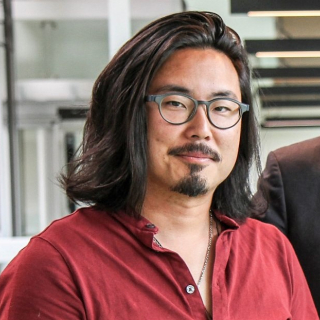
The global far right is creeping into Australia’s local politics. How should policymakers respond?
It’s corflute season in the ACT and Victoria, where territory and council elections are being held this month, following the heels of New South Wales in September. Deciding who oversees your suburb’s footpaths might not seem like a dangerous moment, but in today’s world, it could be. ANU Associate Professor Mark Chou explains.
Read time: 5 mins
Based on Far-right translocalism: Towards a new research agenda, published October 2024 by Mark Chou, Rachel Busbridge, and Benjamin Moffitt.
Local community holds a revered position in the far right’s political imagination. The far right is a catch-all term for a range of groups with xenophobic, racialised, and nationalist politics. Like all political movements, the far right has a traditional political heartland.
In its case, this is in mostly white rural and regional communities, where people are more likely to see themselves as left behind, comparing the quality of their local services with the affluence on offer in the cities. The far right sees these places as belonging to ‘the people’, but this is defined in ideologically and racially exclusive terms.
This effect is not limited to Australia.
In France, for instance, the far right is strongest in the regional southern city of Toulon. In Hungary, the same is true in the regional town of Tiszavasvári. And in the United States, former President Donald Trump was carried to the White House by rural counties in 2016, despite his own roots in New York City.
Here in Australia, the regional town of Bendigo made the news after it was gripped by protests against a proposed mosque in 2015.
In 2020, a teenage chef in the town of Albury was arrested for advocating terrorism, having compared himself to a white supremacist mass murderer, to which he pled guilty.
Recently in Melbourne, a candidate’s corflute was vandalised with racist rhetoric ahead of upcoming local elections.
And this weekend just gone, white supremacists openly held a rally in the country NSW town of Corowa.
One way the academic research community has been trying to understand this is through the concept of ‘translocalism’. Translocalism is an approach for contextualising local political events. It does this by comparing local political narratives with national and even transnational political narratives.
This places local events in the context of its role in the political process overall, thereby challenging the cliché of local elections as the ‘lowest’ form of politics.
Translocalism has informed some great problem-solving already. Given more attention, it could become the strategic foundation of efforts to combat the rise of the far right.
But is the far right’s claim that communities should be ‘for the locals’ reflected in own tactics?
Let’s apply translocalism to a recent case: ‘Drag Queen Story Hour’. Its organisers say that Drag Queen Story Hour is an initiative aimed at children to promote literacy and acceptance of gender diversity.
Drag Queen Story Hour is a local event. It happens in a physical place, supported by local advocacy groups, sometimes with help from businesses or the government. But it has become a transnational movement, expanding from its beginnings in San Francisco in 2015 to cities all over North America, Europe and now Australia.
The far right in Australia campaigned against it, importing their rhetoric from similar groups overseas. In 2023, approximately 170 ‘Freedom Movement’ protestors stormed a meeting of Monash City Council in eastern Melbourne to protest Drag Queen Story Hour. Officials had to call police to stop them clashing violently with counter-protestors. Amongst the protesters was United Australia Party Senator Ralph Babet, who has promoted conspiracy theories popular in the United States at our Federal Parliament.
Applying translocalism to the Monash City Council incident would help policymakers find ways to prevent it in future. The approach would highlight that while protest activity is localised – targeting councils, community groups, and spaces like public libraries – it may be fuelled by national and transnational political narratives.
There’s a risk that local politics, overseas and in Australia, could drown in activism fuelled by national and international political narratives. For those hoping to preserve a truly local politics rooted in everyday matters like local service provision, especially in regional and rural Australia, viewing events through the lens of ‘translocalism’ might inform strategies that help.
